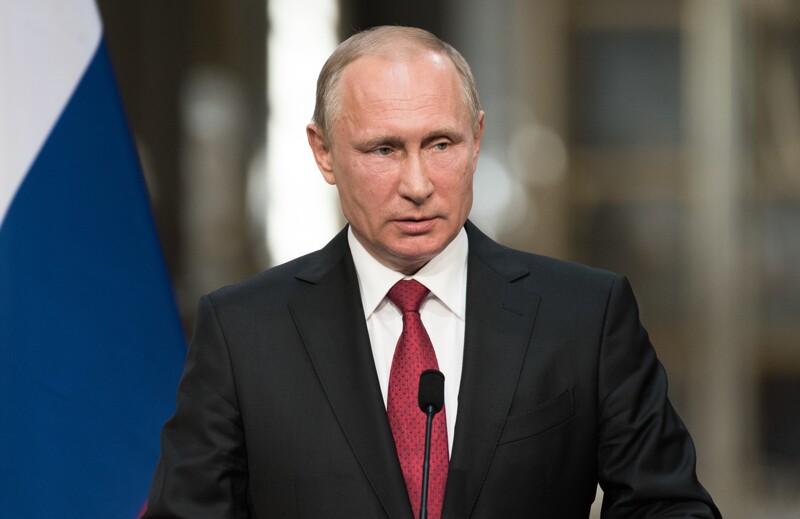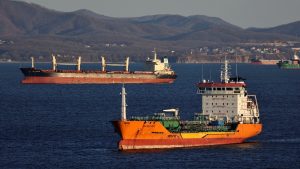- 3 October 2023
- 321
Securing the Seas: Strengthening Enforcement Against Putin’s Shadow Oil Fleet

Introduction
Understanding the Dark Oil Fleet
Challenges in Enforcing Against the Dark Oil Fleet
- a) Covert Operations: The dark oil fleet operates clandestinely, making it difficult to detect and track illicit activities. Vessels may employ tactics such as disabling tracking systems or engaging in ship-to-ship transfers to evade detection.
- b) Jurisdictional Complexities: The international nature of maritime operations complicates enforcement efforts. Coordinating actions among multiple jurisdictions, addressing legal loopholes, and ensuring effective cooperation among nations are essential for successful enforcement.
- c) Technological Advancements: The dark oil fleet adapts to technological advancements, utilizing sophisticated methods to conceal their activities. Keeping pace with these advancements requires continuous innovation and investment in surveillance and detection technologies.
Strengthening Enforcement Measures
- a) Enhanced Surveillance and Intelligence: Investing in advanced surveillance technologies, satellite monitoring systems, and intelligence sharing platforms can improve the detection and tracking of illicit oil shipments.
- b) International Cooperation: Strengthening international cooperation and information sharing among maritime enforcement agencies, navies, and intelligence services is crucial. Collaborative efforts can facilitate coordinated actions, intelligence exchange, and joint operations to disrupt the dark oil fleet’s operations.
- c) Legal Frameworks and Sanctions: Developing robust legal frameworks and imposing stringent sanctions on individuals and entities involved in illicit oil shipments can act as a deterrent. International agreements and conventions should be strengthened to ensure consistent enforcement across jurisdictions.
Expert Insights: Captain Sarah Johnson’s Perspective

Safeguarding Maritime Security and the Environment
Conclusion
Visual Table for Key Points:
| Section | Key Points |
|---|---|
| Unveiling Putin’s Dark Oil Fleet | – Scope and Significance of Illicit Oil Activities Linked to Putin’s Regime |
| – Key Players and Strategies in Operating a Shadow Oil Fleet | |
| Enforcement Gaps and Challenges | – Effectiveness and Limitations of Existing Enforcement Measures |
| – Legal and Operational Hurdles in Combating Illicit Maritime Activities | |
| Maritime Security and Energy Markets | – Interplay Between Illicit Oil Trade and its Impact on Global Energy Security |
| – Implications for Regional and Global Stability | |
| Technological Tools for Detection | – Leveraging Satellite Technology, AIS Data, and UAVs for Enhanced Surveillance |
| and Monitoring | – Cutting-Edge Solutions in Identifying and Tracking Illicit Maritime Activities |
| International Cooperation | – Role of Multilateral Agreements and Cooperation in Combating Shadow Oil Fleets |
| – Success Stories and Challenges in Previous Collaborative Efforts | |
| Legal Frameworks and Jurisdiction | – International Legal Frameworks and Jurisdictions Relevant to Maritime Enforcement |
| – Overcoming Legal Challenges in Prosecuting Perpetrators of Illicit Oil Activities | |
| Economic Sanctions and Deterrence | – Efficacy of Economic Sanctions in Deterring Illicit Oil Trade |
| – Balancing Punishment and Incentivizing Compliance | |
| Dr. Elena Petrova’s Analysis | – Challenges and Strategies in Combating Putin’s Shadow Oil Fleet |
| – Forecasts for How Enforcement Efforts Can Be Strengthened in the Future | |
| Capacity Building and Training | – Building the Capabilities and Expertise of Maritime Security Forces |
| – Role of Training Programs and Knowledge Sharing in Strengthening Enforcement | |
| Sustainable Solutions | – Sustainable Approaches to Mitigate Future Threats Posed by Illicit Oil Trade |
| – Balancing Security Measures with the Facilitation of Legitimate Maritime Trade |
Organic Keyword Usage
The article will naturally incorporate relevant keywords like “Putin’s shadow oil fleet,” “maritime security enforcement,” and other pertinent terms within the context to ensure a smooth reading experience while optimizing for search engines.
Human-Centric Formatting
The content will be structured for ease of understanding, featuring clear language, concise paragraphs, and visual aids (such as maps or infographics) where appropriate, to enhance reader comprehension and engagement.

